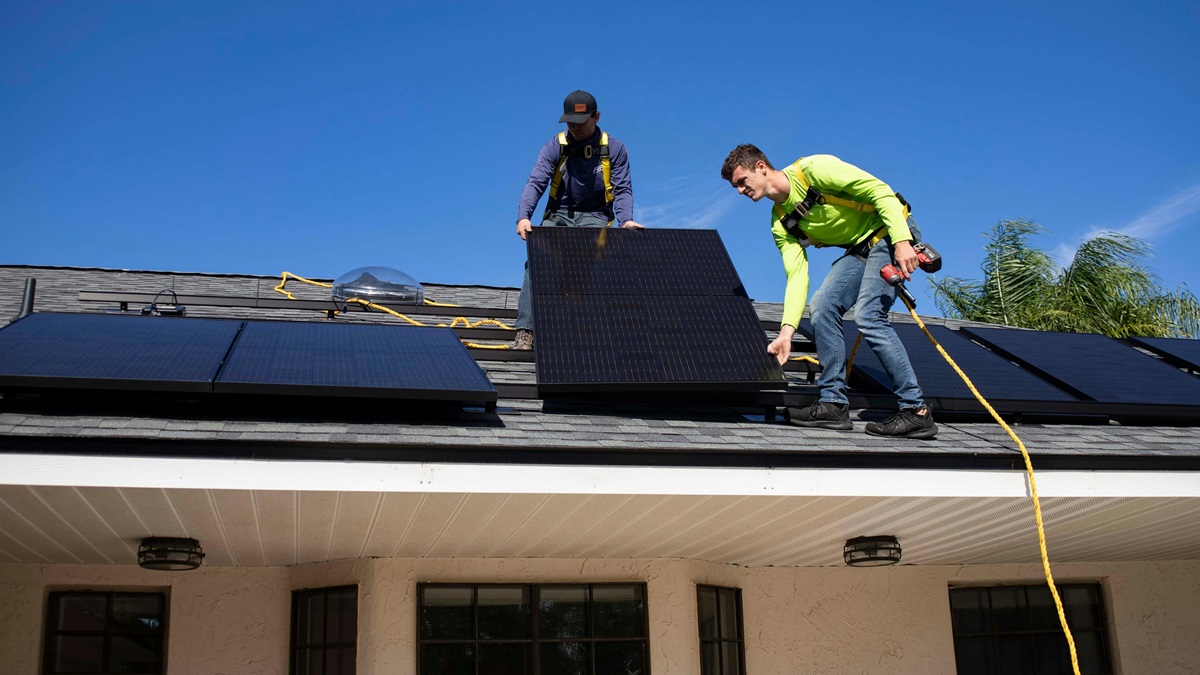Off-Grid Solar Systems
These days just about everybody wants to pay less for power bills and you can do that by disconnecting from the grid. There’s a difference between off-grid living and living off-grid. The first is what I want to talk about today in this article, and that is using energy generated by your solar panel and battery system without being connected to the grid. Living off-grid is more about full-on self-sufficiency of food production, water, waste, and power production with off-grid living. So, with off-grid solar energy and battery storage systems, I’m really only going to look at the power side of the equation.
1. Grid-Tied Solar Versus Off-Grid
If you are like me, you’re probably a little tired of relying on the grid for your energy needs. Maybe you have a grid solar system you’d like to improve. Have you ever wondered what it means to go off-grid with solar power? At SWIFT SOLAR and Electrical, we’re here to guide you through how to achieve energy independence with solar power. Going off-grid means living self-sufficiently without relying on the traditional electrical grid. This lifestyle amounts to potentially large cost savings, reduced environmental impact, and power reliability, especially in remote areas. There’s a certain gratifying feeling you have with energy independence, especially when it means lifestyle comfort benefits like air conditioning year-round at no cost.
2. What is an Off-Grid Solar Power System?
An off-grid solar power system is a self-sustaining energy solution that operates independently of the traditional power grid. You would harness energy from the sun through solar panels and store any excess power in batteries for later use.
The key components of an off-grid system include solar panels, inverters, batteries, and sometimes backup generators to ensure a constant energy supply.
3. Benefits of Going Off-Grid
Going off-grid offers several advantages. Here are some of them:
Energy Independence
You no longer have to rely on external power sources, and you have control over your energy usage.
Cost Savings
While the initial investment can be high, the long-term savings on energy bills make it worthwhile.
Environmental Impact
You reduce reliance on fossil fuels. Burning less fuel has so many benefits, among them respiratory health. Now you might subscribe to the idea of decreasing your carbon footprint. But even if you don’t believe that, there’s something wonderful about using what will become free power from the sun. From another point of view, I noticed I instantly became far more mindfully aware of my own energy usage the moment our household became a solar powered home.
Reliability
In remote areas, off-grid systems provide a reliable power source where the traditional grid can be unavailable or unstable.
4. How Does an Off-Grid System Work?
An standalone solar system generates energy from solar panels, which is then stored in batteries. During the day, solar panels convert sunlight into electricity, which is used to power your home and charge the batteries. At night or during cloudy days, the stored energy is used to meet your energy needs. How well your energy consumption is managed is down to good system design, (where it is crucial to balance supply and demand) and awareness of your power usage patterns and habits.
5. Components of an Off-Grid Solar System
Each component of an off-grid system plays a vital role.
Solar Panels:
Capture sunlight and convert it into electricity.
Batteries:
Store excess energy for use during non-sunny periods.
Inverters:
Convert the direct current (DC) from the panels into alternating current (AC) for household use.
Backup Generators:
Provide additional power during extended periods of low sunlight, because you need to generate electricity in your home or business, 24/7.
6. Steps to Transition to an Off-Grid Solar System
Transitioning to an self-sufficient solar system involves several steps:
Assess Energy Needs:
You have to work out your household’s energy requirements.
Design the System:
You then create a customized system based on your energy needs and available space.
Installation:
Then… a professional installation of solar panels, batteries, and other components.
Maintenance and Monitoring:
Regular maintenance and monitoring ensure optimal performance and longevity.
7. Challenges and Considerations
While you will find many benefits from going off-grid, there are some challenges to consider:
Initial Investment:
The upfront cost of equipment and installation can be high. There are finance options that can help you more easily afford and off set your costs.
Weather Variations:
Solar energy production can be affected by weather and seasonal changes. Clear sunny skies deliver more sunlight than cloud cover, and tree cover and shading of the panels play a part. The more unhindered rays to hit your panels from the optimal directions, the better power generation.
Battery Management:
Proper maintenance and management of batteries are essential for efficient energy storage.
Technical Expertise:
It’s not set and forget. You do occasionally need technical support and expertise for system maintenance, and software and hardware upgrades.
8. Real-Life Examples and Success Stories
Many homeowners have successfully transitioned to living independent of the grid . For instance, John S. from the Ilkley installed an off-grid solar system and now enjoys energy independence and has obliterated his energy bills while contributing to a sustainable future. His system provides dependable power even during grid outages, ensuring uninterrupted electricity for his home.
9. Government Incentives and Rebates
In Australia, several government incentives and rebates are available to support the adoption of off-grid solar systems. These incentives can significantly reduce the initial investment cost and make the investment in your solar battery system more accessible. Programs like the Small-scale Technology Certificates (STCs) offer financial benefits for installing renewable energy systems. Check with local authorities and energy providers to explore available options and eligibility criteria. When you engage SWIFT SOLAR, we’ll take the stress out of all the red tape and deal with all the authorities for the permits and approvals.
10. You Can Live Off the Grid
To go off the grid with solar power is not only possible, it’s a rewarding option that helps you achieve energy independence and sustainability. By harnessing the power of the sun, you can enjoy significant cost savings, reduce your environmental impact, and ensure a reliable power supply for your home. At SWIFT SOLAR and Electrical, we’re committed to helping you make the transition to far reliance on the grid. Contact us today to learn more about how we can design and install a custom off-grid solar system tailored to your needs.
No related posts.



